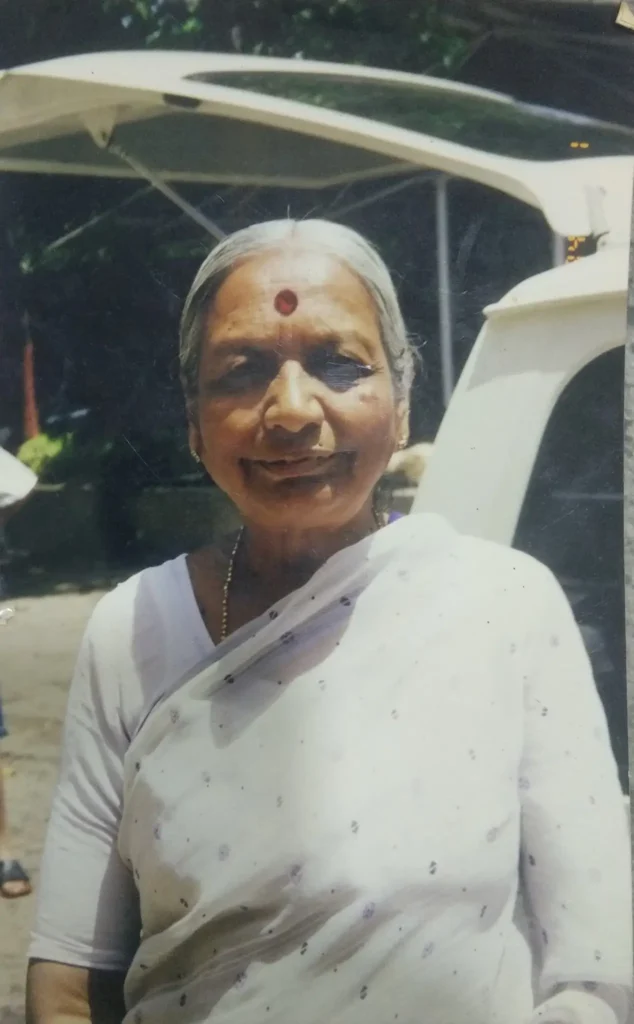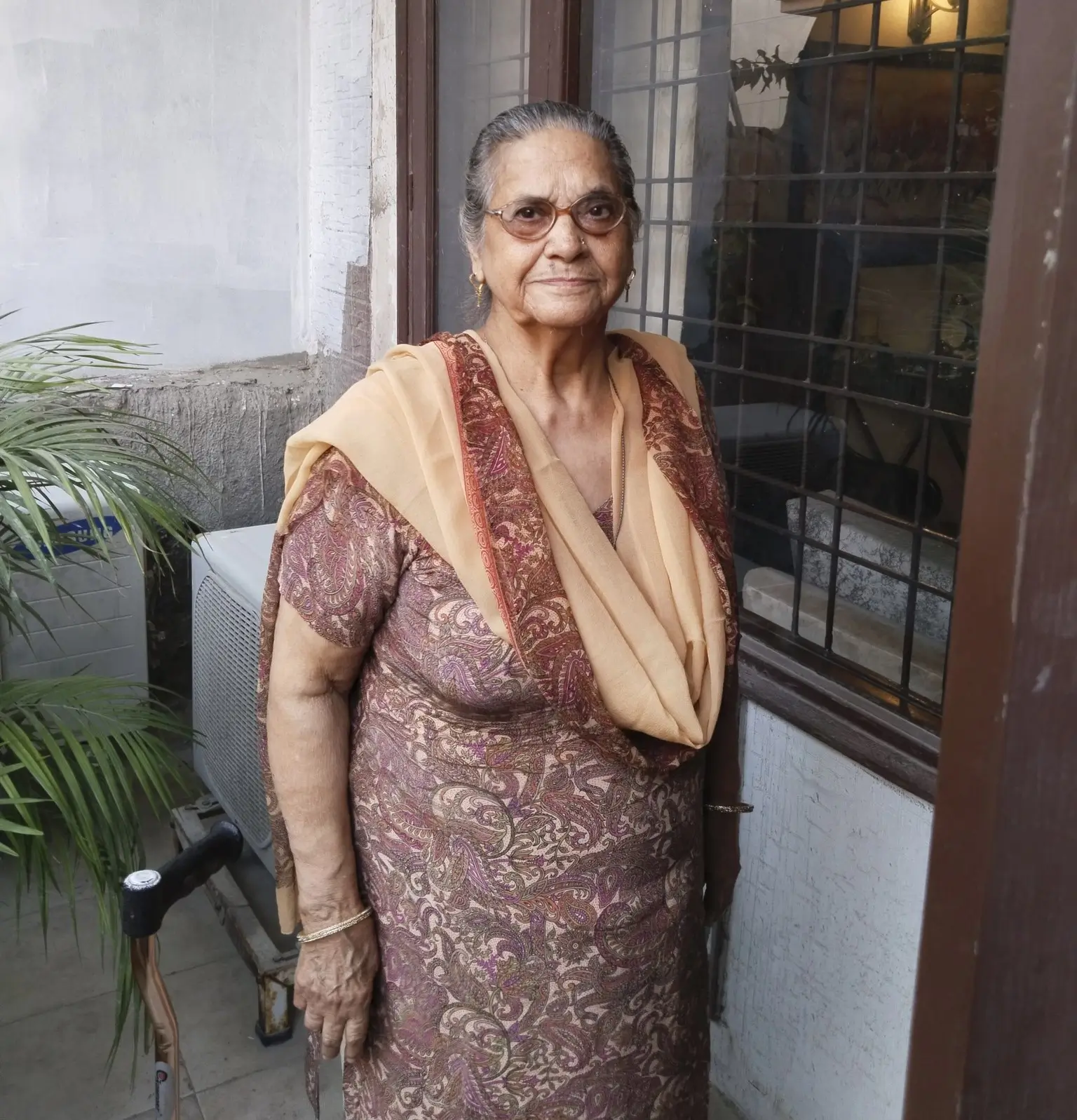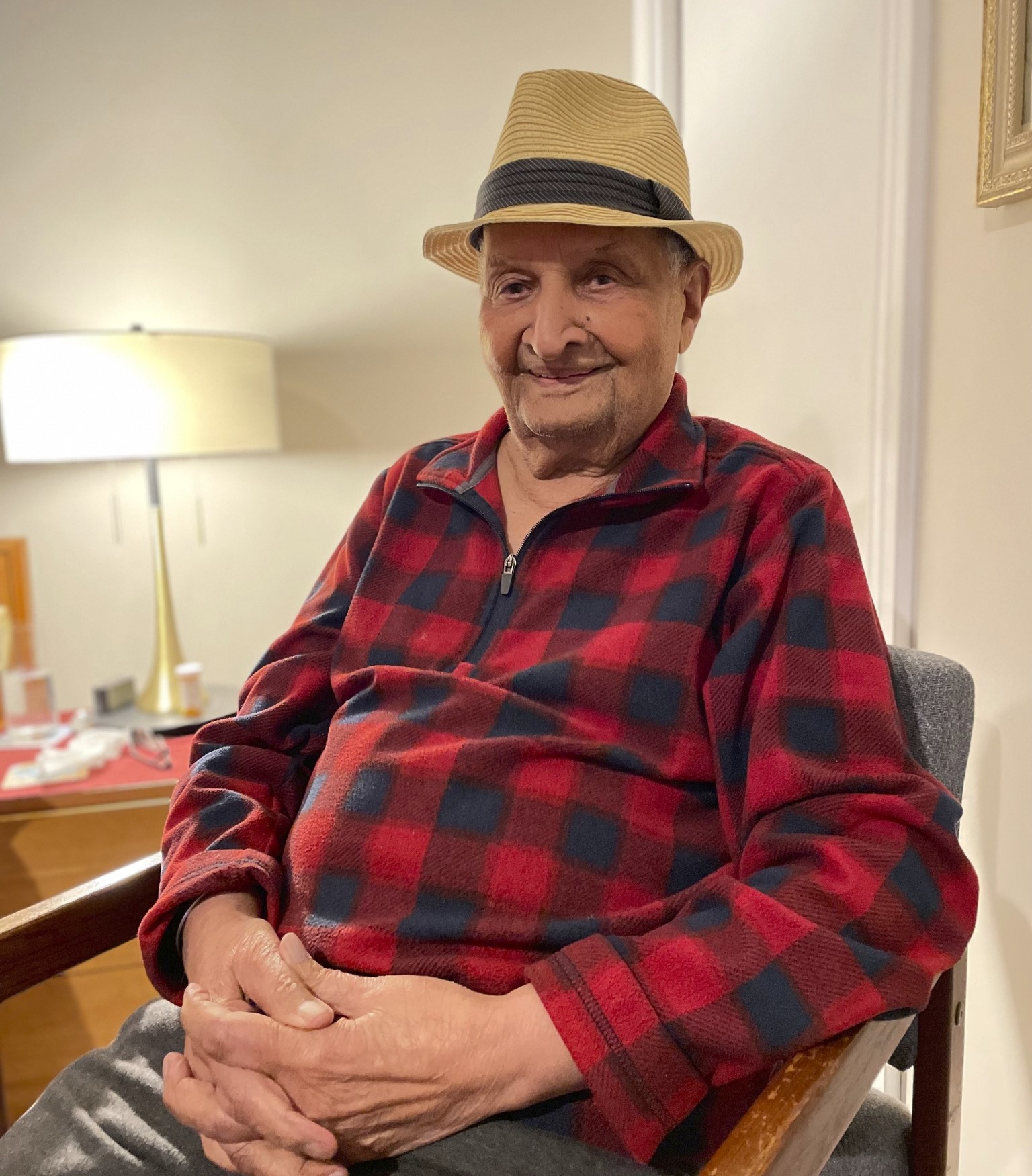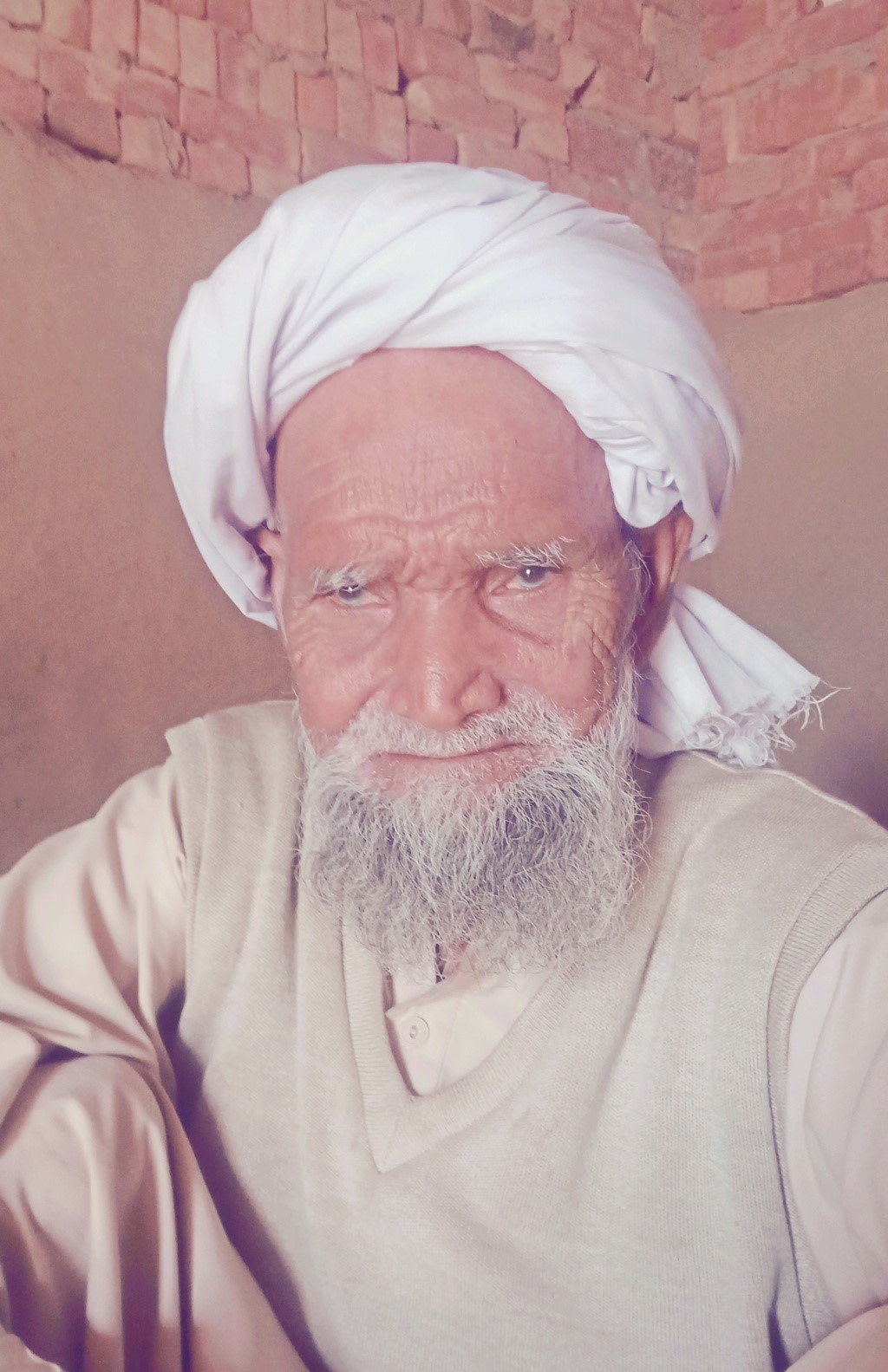Sushila Balkrishna Wagh, an 85-year-old survivor, was a witness to Partition. She provided personal information about her
Oral Historian: Yash Anil Pund
Camera Person: Pankhuri Wagh
Summary:
Sushila Balkrishna Wagh, an 85-year-old survivor, was a witness to Partition. She provided personal information about her family during the conversation, elucidating the Wagh lineage. She recalls her paternal grandfather’s work as the governor’s personal assistant, wearing the governor’s office insignia around his waist. The family was raised with a strong sense of discipline by her grandfather. Her paternal uncles were both government employees, while her father, Balkrishna, worked for the Burmah Shell Company. One of her uncles was a military man, the other a police faujdar (petty officer). Her mother was a homemaker. The family had relatives in Poona (now called Pune) city of the Bombay Presidency (an administrative subdivision of British India). Her paternal aunts were married to families in Poona and its neighboring region. She recalls sending and exchanging letters with them. Initially, the family resided in the quarters inside the Sindh Governor’s House. Sushila, who has two sisters and three brothers, is one of the six children in a family of ten members. They spoke Punjabi and Hindi with ease and spent their early years playing games. She talks of a diet high in non-vegetarian foods including fish, poultry, and mutton.
It was only after they relocated that Marathi became perfected as their native tongue. She recalls having a desire to go out and munch on golgappas (panipuri, a fried dough served with different fillings) at the neighborhood bazaar with her sisters. She also remembers seeing Hindi and Punjabi films starring Mumtaz Begum. Her grandfather owned a multi-storey house that contained separate rooms for each member of the family. The locality was a mixture of Hindus, Muslims, Sikhs, and Parsis living in the area known as “Maliwada”, which means “a community of Malis” (lower caste within the Hindu caste hierarchy). She makes a clear distinction between the local Muslims, whom she refers to as “old Muslims”, and the newly arrived Muslim refugees from Punjab, the United Provinces (Uttar Pradesh), and Bihar, whom she describes as being excessively violent and orthodox. She holds these Urdu-speaking refugees responsible for the communal riots in Karachi.
She recalls her family’s friendly interaction with everyone in their neighborhood to give an example of interfaith relations. Muslim families from nearby would frequently stop by and have lunch at their houses. The Wagh family placed a high value on their relationships with the local Parsis, Muslims, and Sikhs, and communal harmony in general. She hardly recalls Gandhi’s 1934 visit to Karachi, but she misremembers the date because she was not born at the time. In Karachi, Sushila and her younger sister Subhadra did not attend school; only her older sister Sumathi did. She remembers that when someone enquired about Sumathi at school or in the neighborhood, some of the local Muslims used to shield her by referring to her as their daughter or niece. Her parents were unable to concentrate on educating all of their children because of the environment leading up to Partition in the 1940s.
She was eight years old when Partition happened. She recalls that they had locked themselves inside their home, becoming prisoners inside. Karachi was relatively peaceful but riots started in 1948. She recalls feeling confused and powerless. She calls the new wave of Muslim refugees “Bihari Muslims”, who broke into homes, pillaged, and looted properties. All of the sisters were instructed by their mother to keep their identities a secret, speak in a hushed tone, and never tie their hair. Her mother did not apply vermilion to hide her marital status.
She vividly recalls the incident of Gandhi’s assassination when she was in Karachi, amidst a socially sensitive environment. When sweets were distributed in their locality to celebrate, Sushila, who was then a young girl, recalls her father throwing these sweets away when she and her sisters brought them home. He severely admonished them, “Gandhi was our leader, you two should feel terrible. This will not be done in my home.”
She continues explaining that Hindus in Sindh were being forced to emigrate by the Pakistani government in the meantime. She questioned her parents about their migration on several occasions. The government even arranged for passes for boat trips, she says. Her parents, especially her father, decided to flee Karachi. The “local Muslims” pleaded with them to stay and offered positive arguments for the same. She remembers her mother filling three metal trunks with essential belongings like some clothes and utensils. During travel, one box was lost. In 1951, they eventually departed Karachi. She traced the precise migration route from the port of Karachi to Bombay (now known as Mumbai) and then on to Poona. She remembers taking a boat across the sea for three or four days.
According to her estimate, the multi-storey boat carried 200-300 people. Eventually, they landed in Bombay as ‘refugees’ and described a sense of relief upon reaching India, leaving behind death and destruction. She describes this journey as one from ‘captivity’ to ‘freedom’. They were welcomed and their return was celebrated in Bombay, she says. Upon reaching Bombay, she remembers going to the Victoria Terminus (Chhatrapati Shivaji Maharaj Terminus today) and then further to Poona by taxi. The costs for travel were defrayed by the Government of India. She adds that due to her father’s job in Burmah Shell, any additional costs were taken care of by the company.
She details significant cultural differences between Karachi and Poona. An illustration of the discrimination she and her family faced was because the women wore Punjabi salwar-kameez (a traditional Punjabi outfit of a tunic and trousers) and kurtis (a short cotton waist coat) which were reminiscent of their Sindh background. Further, she explains that while looking for a potential bridegroom for her elder sister Sumathi, they were not accepted as ‘Marathi’ as they were considered ‘Pakistanis’ due to their attire.
The family finally settled in Poona, first in Somwar Peth and then in Kasba Peth. Her father was transferred to Sewri in Bombay where there were massive installations of the Burmah Shell Company. The sisters, along with their brothers, started their schooling in Poona itself. Sushila and her young sister Subhadra studied at Bholagir Primary School in Somwar Peth while her brothers Suresh and Subhash studied at St. Ornellas High School. Sushila finally left Agarkar Girls High School in Poona in the 9th grade.
Sushila explains her affinity for doing something for the community and giving back. She decided not to marry and immersed herself in social work. She was ably supported by her father and the community in this endeavor. With social upliftment as her aim, she set out to set up a hostel for girls, including students and working women. Her dream was finally accomplished when the Bhagyashree Saguna Ladies Hostel was inaugurated in Poona in 1985. She eventually retired due to old age, looking after this hostel for 30 years as its chief matriarch and patron.
Her message to the younger generation is to love each other, maintain communal harmony, and learn from her generation’s mistakes. She expresses sorrow at telling her story in detail for the very first time but urges the youth in both India and Pakistan to work towards building themselves and contribute meaningfully to their countries.







